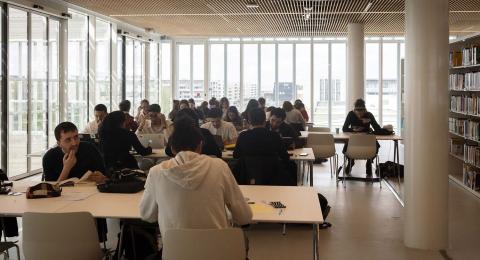M2 Industrial Robotics



Information
Skills
Identify and characterise a problem with the design or improvement of an automated and/or robotic production tool.
Objectives
The Industrial Robotics curriculum, is a research and professional training aiming to train multidisciplinary engineers that master the integration and the implementation of complex robotics / automated installations into smart factories. The courses are organized around the scientific and technical fundamentals to understand and use the robotic tools and also to understand the working environment of the robot and to characterize it, size it, and define its interactions in order to design, control and maintain an optimized production tool as part of the smart factory.
Fees and scholarships
The amounts may vary depending on the programme and your personal circumstances.
Capacity
Available Places
Supporting documents
Compulsory supporting documents
List of post-secondary school studies mentioning exclusively the year, course, institution, average grade and your grade or distinction.
Rank of previous year and size of the promotion.
Motivation letter.
All transcripts of the years / semesters validated since the high school diploma at the date of application.
Certificate of French (compulsory for non-French speakers).
Curriculum Vitae.
Detailed description and hourly volume of courses taken since the beginning of the university program.
Additional supporting documents
VAP file (obligatory for all persons requesting a valuation of the assets to enter the diploma).
The application procedure, which depends on your nationality and your situation is explained here : https://urlz.fr/i3Lo.
Supporting documents :
- Residence permit stating the country of residence of the first country
- Or receipt of request stating the country of first asylum
- Or document from the UNHCR granting refugee status
- Or receipt of refugee status request delivered in France
- Or residence permit stating the refugee status delivered in France
- Or document stating subsidiary protection in France or abroad
- Or document stating temporary protection in France or abroad.





